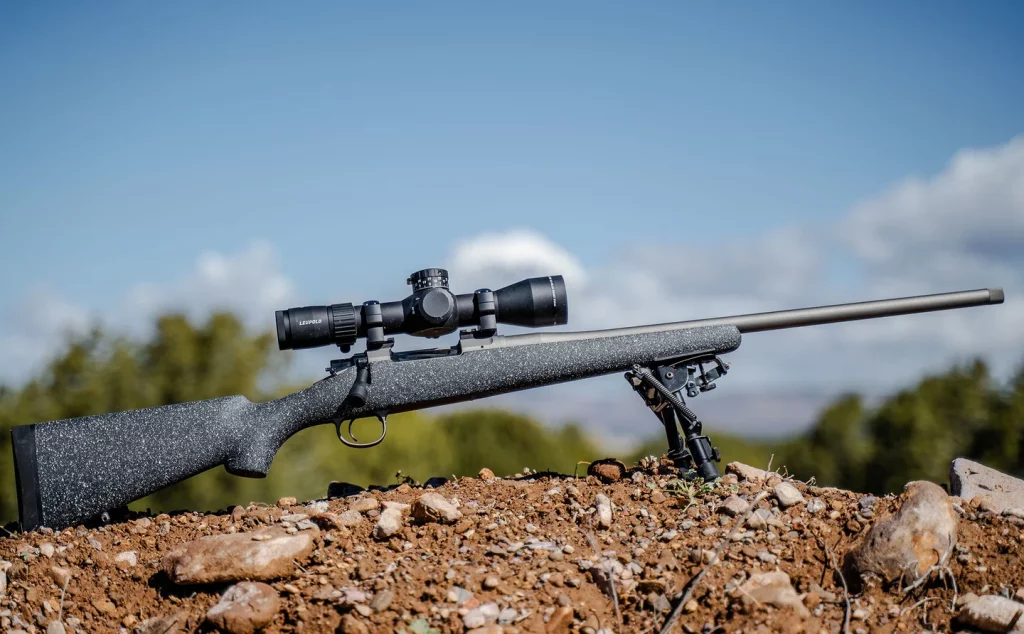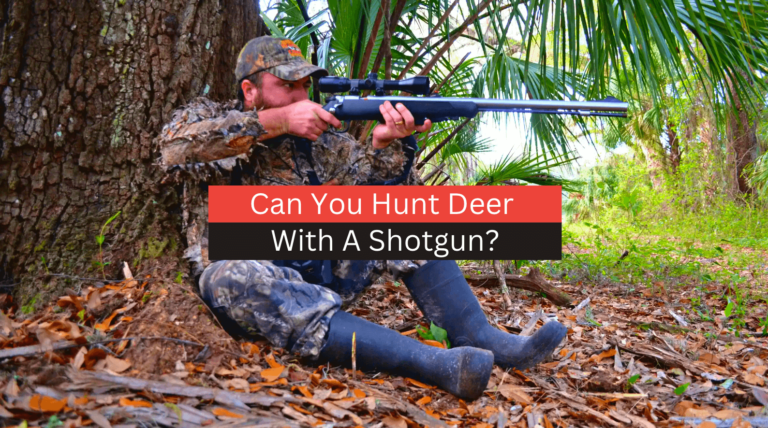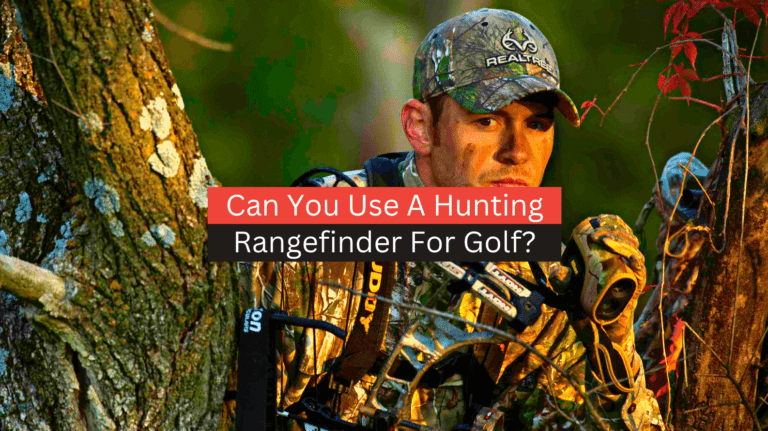Are you planning on purchasing a firearm for your next hunting trip? If so, there are a few essential factors you need to consider before making your decision. Choosing the right firearm can mean the difference between a successful hunt and a disappointing one.
So, before you make any hasty decisions, let’s take a closer look at what you should check before choosing a firearm for hunting.
First and foremost, it is crucial to ensure that you meet any minimum legal requirements for caliber, gauge, or projectile energy production. These requirements can vary depending on the game you are hunting and the state or country in which you are hunting. Make sure you research the specific game hunting regulations for your location and game type to avoid any legal issues.
Once you have checked the legal requirements, it is time to focus on the firearm itself. It should be powerful enough to kill the game quickly and effectively. The last thing you want is to wound an animal and cause unnecessary suffering. It’s not only inhumane but also a waste of your time and resources.
Another crucial factor to consider is the fit of the firearm. It should feel comfortable in your hands, and you should be able to aim and shoot it accurately. If the firearm is too big or small, it can be challenging to handle, and you may struggle to hit your target.
Lastly, consider the recoil of the firearm. Recoil is the backward movement of a gun when it is fired. You want to choose a firearm with the correct amount of recoil, usually moderate so that you will practice more often and shoot more proficiently. If the recoil is too strong, it can be intimidating and cause discomfort, which can affect your accuracy and confidence.
Know the Four Rules of Firearm Safety
The Four Rules of Firearm Safety are fundamental guidelines that all gun owners and users must follow to ensure the safe handling and use of hunting firearms.
- The first rule is to treat every firearm as if it is loaded, even if you know it is not.
- The second rule is to never point a firearm at something you do not intend to shoot.
- The third rule is to keep your finger off the trigger until you are ready to shoot.
- The fourth rule is to be sure of your target and what is beyond it.
These rules are designed to prevent accidental discharges, keep bystanders and others safe, and ensure that the firearm is only used for its intended purpose. It is important to remember and apply these rules whenever handling or using firearms to avoid any unfortunate incidents.

What Factors Should You Consider When Choosing a Firearm for Hunting?
Hunting is a popular recreational activity that involves the use of firearms. However, choosing the right firearm for hunting can be a daunting task, especially for beginners. It’s essential to consider various factors when selecting a hunting firearm to ensure that you have an efficient and safe hunting experience.
Consider Your Ability
The first thing you need to consider when choosing a deer hunting firearm is your ability. You need to choose a firearm that you can handle comfortably. Consider factors such as recoil, weight, and size. If you’re a beginner, it’s best to start with a smaller caliber firearm that’s easier to handle.
Think About Your Situation
Your hunting situation plays a crucial role in the firearm you choose. Consider the type of game you will be hunting, the distance from which you will be shooting, and the terrain you will be hunting in. For instance, if you plan to hunt small games like rabbits, you don’t need a high-powered firearm. However, if you plan to hunt a large game like elk, you’ll need a high-powered firearm.
Where Do You Plan to Hunt?
The location you plan to hunt will determine the type of firearm you should choose. If you plan to hunt in a densely populated area, you’ll need a firearm with a shorter range to avoid endangering other people. On the other hand, if you plan to hunt in an open area, you’ll need a firearm with a longer range to take accurate shots.
What is Your Budget?
Firearms can be expensive, so it’s essential to consider your budget when choosing a hunting firearm. However, you don’t need to break the bank to get a good hunting firearm. There are plenty of affordable firearms that are perfect for hunting. You can also consider buying a used firearm if you’re on a tight budget.
In addition, choosing the right hunting firearm requires careful consideration of various factors. By considering your ability, hunting situation, location, and budget, you’ll be able to choose a firearm that’s efficient and safe for your hunting experience. It’s also important to note that hunting regulations vary from state to state, so be sure to check your local regulations before purchasing a firearm.
Know Your Hunting Firearm Laws and Legal Requirements
Hunting firearm laws and legal requirements vary by state and country, so it’s important to familiarize yourself with the specific regulations in your area before heading out on a hunting trip.
Generally, hunters are required to have a valid hunting license and comply with specific rules around the type of firearm and ammunition they can use, as well as the time of day and location where hunting is allowed. Some areas also have restrictions on the size and type of game that can be hunted and may require hunters to report their harvest or obtain additional permits for certain species.
Failure to comply with these laws can result in fines, loss of hunting privileges, or even criminal charges. It’s always best to do your research and follow all applicable regulations to ensure a safe and legal hunting experience.
What Should You Check to Make Sure the Firearm Is Safe to Use?
Using firearms requires knowledge and responsibility, and it is essential to ensure that the firearm is safe to use before handling it. There are several things you should check to make sure that the firearm is safe to use.
Step 1: Check Yourself
Firstly, you should check yourself. Ensure that you are physically and mentally capable of handling the firearm. Ensure that you have proper training on how to use the firearm, and you have the right mindset to use it safely.
Step 2: Check That the Firearm Is Unloaded
Secondly, you should check that the firearm is unloaded. Point the firearm in a safe direction and remove the magazine. Then, pull the slide or bolt back to ensure that there is no ammunition in the chamber. Check the chamber visually and physically to confirm that it is empty. Always treat every firearm as if it is loaded, and never assume that it is unloaded.
Step 3: Check the Action
Thirdly, you should check the action. The action refers to the mechanism that loads, fires, and ejects cartridges from the firearm. Ensure that the action is in proper working condition, and there is no obstruction in the barrel or action.
Step 4: Check the Barrel
Fourthly, you should check the barrel. Check the barrel for any obstructions or damage that could prevent the safe use of the firearm. Run a bore brush through the barrel to remove any debris, and ensure that there are no signs of corrosion or damage.
Step 5: Check the Stock
Fifthly, you should check the stock. The stock is part of the firearm that you hold onto, and it should be in good condition. Check that the stock is securely attached to the firearm, and there are no cracks or damage that could cause the firearm to malfunction.
Step 6: Check Your Sights
Finally, you should check your sights. The sights are the devices that help you aim the firearm, and they should be aligned correctly. Ensure that the front and rear sights are properly aligned and adjusted for the intended shooting distance.
It is essential to follow safety procedures when handling firearms, and ensuring that the firearm is safe to use is crucial. By checking yourself, checking that the firearm is unloaded, checking the action, checking the barrel, checking the stock, and checking your sights, you can help ensure that you use firearms safely and responsibly.
How Do You Choose the Right Ammunition for Your Firearm?
Choosing the right ammunition for your firearm is essential for safety, accuracy, and effectiveness. Here are some key factors to consider when selecting ammunition for your firearm:
- Know Your Gun’s Type and Caliber: Different firearms require different types of ammunition. It’s important to know your gun’s caliber and ensure that the ammunition you choose is compatible with your firearm. Using the wrong type of ammunition can cause serious safety issues and damage to your firearm.
- Know the Local Laws: Laws and regulations regarding ammunition can vary from state to state or even within a state. Make sure you know the legal restrictions on the types of ammunition you are allowed to use in your area.
- Know the Specifics of Your Hunting Situation: The type of game you are hunting, the terrain, and the distance you’ll be shooting from are all important factors to consider when selecting ammunition. For example, if you’re hunting a large animal, you’ll want to use a heavier bullet that can deliver a lethal shot. If you’re hunting in dense brush, you may want to choose ammunition with a flatter trajectory to improve accuracy in a tight space.
- Consider Your Shooting Purpose: If you are using your firearm for self-defense or target shooting, you may want to select ammunition that is designed for those purposes. Self-defense ammunition is often designed to expand on impact, while target shooting ammunition may be designed for accuracy and consistency.
In summary, selecting the right ammunition for your firearm requires careful consideration of your gun’s type and caliber, local laws, the specifics of your hunting situation, and your shooting purpose. Make sure to do your research and consult with experts if you’re unsure about what ammunition to use.
FAQs
What type of gun is best for hunting?
The type of gun that is best for hunting depends on several factors, including the type of game being hunted, the hunting environment, and the hunter’s personal preferences and skill level. Common choices for hunting rifles include bolt-action, lever-action, and semi-automatic rifles, with calibers ranging from .22 to .30-06.
What variable must you consider when choosing a projectile?
When choosing a projectile, one must consider several variables, including the mass and shape of the projectile, the velocity, and angle of launch, the air resistance and drag on the projectile, and the distance and accuracy required for the intended target. Other factors may also include cost, availability, and safety considerations.
What is best to do when you are unsure about taking a shot?
When you are unsure about taking a shot, it is best to take a moment to assess the situation. Consider factors such as lighting, composition, and subject matter. If you still feel unsure, experiment with different angles or settings. Don’t be afraid to take multiple shots and review them later to determine the best option.
How Do You Choose the Right Ammunition for Your Firearm?
The selection of ammunition for your firearm requires consideration of several factors. These include the type of firearm you have, the purpose of the ammunition, the range you intend to shoot from, and the level of recoil to be expected. It is important to choose ammunition that is compatible with your specific firearm, as well as ammunition that is suitable for the intended usage.
Be sure to consult with experts in the field or review trusted resources to ensure that you are selecting the best ammunition for your firearm.
Is Hunter’s Education required?
Yes, a hunter’s education is required in many states for individuals who want to obtain a hunting license. This program teaches important safety skills and hunting rules to make sure that hunting is done in a responsible and moral way.
Some states may let people who have already finished similar programs or have certain military, law enforcement, or other qualifications off the hook or give them other options. It is important to check with your state’s wildlife agency for specific requirements and options.
What legal requirements when selecting a firearm for hunting?
There are several legal requirements to consider when selecting a firearm for hunting. First, you must be old enough to hunt and have a valid hunting license.
You also need to make sure that the firearm you choose is legal for hunting in your state and meets any specific requirements set by your hunting location.
Additionally, it is important to handle firearms safely and ensure that you are proficient in using the weapon before hunting.
Why Is Firearm Fit Important to a Hunter?
Firearm fit is important to a hunter because it affects accuracy and safety. A firearm that fits properly reduces the chance of injury due to recoil or misfire. It also increases the accuracy of the shot by allowing the hunter to confidently aim and shoot their weapon.
A poorly fitting firearm can result in missed targets and frustration.
Ultimately, a well-fitted firearm can enhance the hunting experience and improve the chances of a successful hunt.

I am Sam Billings, an entrepreneur who runs a printing business. In my free time, I enjoy the thrill of the hunt and often spend hours pursuing game. I am passionate about hunting gear and equipment, and I take great pleasure in helping fellow hunters find the right gear for their needs. From rifles and scopes to clothing and accessories, I am always happy to share my knowledge and expertise.






